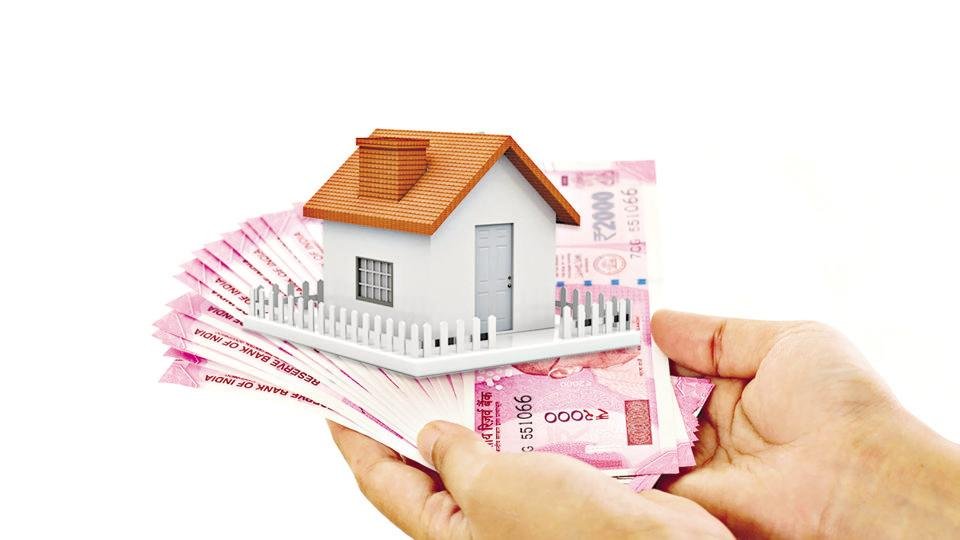In India, a home loan is a financial product that has been designed to assist individuals in buying a house. A home loan is also sometimes referred to as a ‘mortgage loan’ or a ‘housing loan’. The Reserve Bank of India (RBI) regulates the lending of money by financial institutions in India, and has set down certain guidelines for the approval of home loans. In this article, we will look at how to get a home loan in India and the process that is involved.

What is a Home Loan?
A home loan is a loan that is used to purchase a property or home. In India, home loans are available from a variety of financial institutions, including banks, housing finance companies, and non-banking financial companies. The interest rate on a home loan is typically lower than the interest rate on other types of loans, such as personal loans or credit cards.
When you apply for a home loan in India, you will need to provide some basic documents, such as your identity proof, address proof, income proof, and bank statements. You may also be required to provide a property document and an appraisal report. Once your application is approved, the lender will disburse the loan amount to your account. You can then use this money to purchase your property.
The repayment period for a home loan in India is typically 5-30 years. The interest rate on home loans is usually fixed for the first few years and then becomes variable. This means that your EMIs (equated monthly instalments) will remain the same for the first few years and then may fluctuate depending on the changes in interest rates.
Who is Eligible for a Home Loan?
There are several factors that determine who is eligible for a home loan in India. The most important factor is your income. Lenders will want to see that you have a steady source of income and are able to repay the loan. Other factors that lenders will consider include your credit history, employment history, and savings.
What are the Documents Required for a Home Loan?
Home loan is one of the most popular products amongst housing finance companies and banks in India. It allows an individual to buy a house of his/her own without having to pay the entire purchase price upfront. A home loan is granted against the security of a property and is repaid over a certain period of time, usually ranging from 15-20 years.
The first step in availing a home loan is to understand what documents are required for the purpose. Here is a list of essential documents that you will need to submit when applying for a home loan:
- Identity Proof: This could be in the form of your PAN Card, Passport, Voter’s ID, Driving License, etc.
- Address Proof: You can submit any one of the following as address proof – utility bills (not more than 3 months old), passport, voter’s ID, driving license, ration card, lease agreement or sale deed/agreement of the property you intend to purchase.
- Income Proof: Your last 3 months’ bank statements or 6 months’ salary slips would suffice as income proof. In case you are self-employed, you will have to submit your profit & loss account and balance sheet for the last 2 years along with your ITR (Income Tax Return) for assessment by the lender.
- Signature Verification Proof: This could be your passport, PAN Card or driving license.
How to Apply for a Home Loan?
It is easier to get a home loan in India now than it was a few years ago. The process has been streamlined and there are many options available to the consumer.
Here are some tips to help you get started on the right track:
1. Know Your Credit Score: This is one of the most important factors in getting approved for a home loan. Make sure you know your credit score and understand what is being looked at when lenders evaluate your application.
2. Shop Around: There are many different lenders offering home loans in India. It is important to compare rates and terms before choosing a lender.
3. Get Pre-Approved: Getting pre-approved for a loan will give you an idea of how much you can borrow and also strengthen your negotiating position when it comes time to purchase a property.
4. Understand the Fees: Home loans come with various fees and charges. Be sure to ask about all of these upfront so there are no surprises later on.
5. Know Your Rights: The Reserve Bank of India has put in place several consumer protection measures for borrowers. Familiarize yourself with these rights so that you can make informed decisions about your loan agreement.
What is the Interest Rate on a Home Loan?
The interest rate on a home loan in India can vary depending on a number of factors. The most important factor is the RBI Repo Rate, which is the rate at which banks borrow money from the Reserve Bank of India. Other factors include the type of home loan you are taking, the tenure of your loan and your credit score.
The RBI repo rate currently stands at 6%. This means that if you are taking a home loan with a tenure of 20 years, your interest rate will be around 9% p.a. However, if you have a good credit score, you may be able to get a lower interest rate.
There are two types of home loans in India- fixed rate and floating rate. As the name suggests, the interest rate on a fixed rate home loan is fixed for the entire tenure of the loan. This makes it easy for borrowers to budget their monthly repayments. However, because the interest rate is fixed, it may be higher than the prevailing market rates.
Floating rate home loans have an interest rate that fluctuates with market rates. This means that your monthly repayments may go up or down depending on market conditions. However, because floating rates are usually lower than fixed rates, they can save you money in the long run.
What is the Processing Fee for a Home Loan?
The processing fee for a home loan is a fee charged by the lender for processing the loan application. This fee is generally a percentage of the loan amount and is paid at the time of applying for the loan. The processing fee may vary from lender to lender and also depends on factors such as the type of loan, income and credit history of the borrower.
What are the Prepayment Charges on a Home Loan?
Prepayment charges on a home loan are fees charged by the lender for prepaying, or closing out, a home loan before the end of its term. These charges can be a percentage of the loan amount, a flat fee, or a combination of both. Many lenders will waive these charges if the borrower keeps the loan for at least a certain number of years, typically two to five.
How to Choose the Best Bank for a Home Loan?
When it comes to taking out a loan to buy a house, you will want to make sure that you choose the best bank for a home loan. There are many different banks that offer home loans, so how do you know which one is right for you?
The first step is to look at your own financial situation and figure out what you can afford. You will need to take into account your income, debts, and other financial obligations when determining how much you can afford to pay each month.
Once you have an idea of what you can afford, start shopping around for the best interest rates and terms. Be sure to compare offers from several different banks before making a decision.
It is also important to consider the fees associated with taking out a home loan. Some banks charge origination fees, while others do not. You will also want to find out if there are any prepayment penalties involved.
Once you have found the best bank for a home loan, be sure to shop around for the best deal on your mortgage. There are many different lenders out there, so be sure to compare their rates and terms before making a decision.
Also Read: How To Get Student Loan In India

